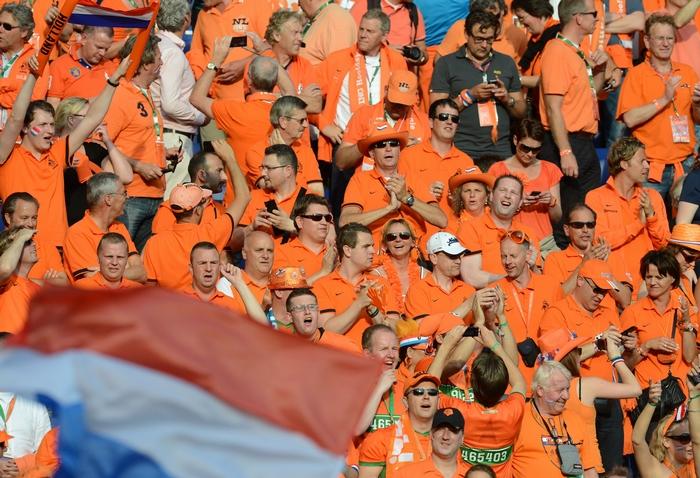欧洲杯是怎么读音发音的呢
553
2024 / 05 / 12
The European Championship, commonly known as the Euro Cup, is one of the most prestigious tournaments in the world of football. It brings together the best national teams from Europe to compete for the coveted title. Alongside the players, the fans play a crucial role in the spectacle, creating an atmosphere that is both electric and unforgettable. Among these fans, a unique language has evolved, characterized by acronyms and abbreviations that encapsulate their passion and identity. This article delves into the world of Euro Cup fan acronyms, exploring their origins, meanings, and the cultural significance they hold.
Fan acronyms are not a new phenomenon; they have been around as long as organized sports. However, with the advent of social media and the internet, these acronyms have proliferated and become more complex. Fans use them to quickly express their allegiance, emotions, and opinions in a condensed form that is easily shared and understood within the community.
1.
2.
3.

4.
5.
Fan acronyms are more than just shorthand; they are a form of cultural expression. They reflect the values, traditions, and even the humor of the fan community. For instance, the use of
Social media platforms like Twitter, Facebook, and Instagram have become hotbeds for fan acronyms. These platforms allow fans from all over Europe to connect, share their experiences, and discuss the tournament in realtime. The use of acronyms on these platforms is strategic; it allows fans to communicate quickly and efficiently, especially during live matches when emotions are running high.
While fan acronyms are generally a positive aspect of the Euro Cup experience, they can also lead to misunderstandings and controversies. For example, acronyms can be used to mock or belittle other teams or fan groups, leading to online conflicts. Additionally, the use of acronyms can exclude those who are not familiar with them, creating a barrier to entry for new fans or those from outside the community.
The acronyms used by Euro Cup fans are a fascinating aspect of the linguistic landscape of football. They encapsulate the passion, identity, and culture of the fan community while also facilitating communication in the fastpaced world of social media. As the Euro Cup continues to captivate audiences across Europe and the world, these acronyms will undoubtedly evolve and continue to play a significant role in the fan experience. Understanding them not only enhances one's appreciation of the tournament but also provides insight into the rich tapestry of European football culture.
